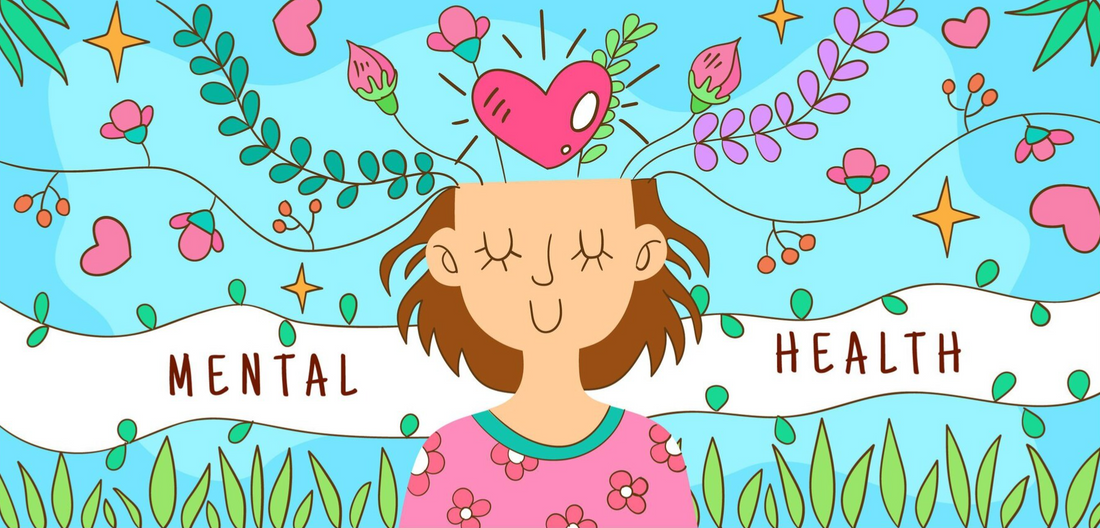
Child Mental Health
Share
How to Foster Emotional Well-Being in Children
Child mental health is a crucial aspect of their overall development, yet it is often overlooked or minimized. However, just like physical health, emotional and mental well-being is essential for children to grow up happy, confident, and ready to face life's challenges. In this article, we will explore the importance of mental health in young children, how to spot signs of potential emotional issues, and how to support the mental well-being of your children.
Why is Child Mental Health Important?
Mental health directly impacts a child's overall well-being. A child with good mental health:
- Develops social skills: They learn how to interact positively with peers and adults.
- Handles stress better: They adapt more easily to changes and difficult situations, such as moving to a new home, the arrival of a sibling, or transitioning to school.
- Improves academic performance: Emotionally balanced children find it easier to concentrate, learn, and participate in school activities.
- Builds self-esteem: Good emotional health helps children recognize their strengths, feel valued, and develop self-confidence.
On the other hand, untreated emotional issues can lead to anxiety disorders, depression, relationship difficulties, and behavioral problems.
Signs That a Child May Need Emotional Support
As parents, it's crucial to be aware of signs that might indicate your child needs help with their mental health. Some common signs include:
- Behavioral changes: If a child who used to be outgoing becomes withdrawn, or if a calm child starts acting aggressively, this could be a sign of emotional distress.
- Sleep problems or recurring nightmares: Sleep disturbances are common when children are stressed or anxious.
- Insecurity or low self-esteem: If a child consistently feels inadequate or incapable, they might be struggling with their self-esteem.
- Regression in behavior: If a child reverts to baby-like behaviors (e.g., bedwetting or seeking a pacifier) after having outgrown them, they might be experiencing anxiety.
- Changes in eating habits: Overeating or not eating at all can be indicative of emotional struggles.
How to Support Your Child’s Mental Health
The good news is that parents play a crucial role in their child’s emotional well-being. Here are some strategies you can implement to help maintain your child's mental health:
-
Encourage open communication: Encourage your child to talk about how they feel. Listen without judgment and validate their emotions. Sometimes, they just need to know that their feelings are important and understood.
-
Establish routines: Children thrive on stability and routines. Having consistent schedules for meals, playtime, and rest provides them with emotional security.
-
Promote physical activity and play: Exercise is excellent for releasing tension and improving mood. Additionally, play is vital for children to process their emotions and learn to socialize.
-
Boost self-esteem: Help your child recognize their accomplishments, no matter how small, and value their efforts. Encourage confidence in their abilities and self-respect.
-
Seek professional help if needed: If you notice that your child continues to struggle with emotional issues, don't hesitate to seek support from a child psychologist or a specialized counselor. Early intervention is key to addressing mental health problems and preventing them from worsening.
The Importance of Being an Emotional Role Model
Children learn by observing their parents, so it’s essential to model healthy emotional well-being. If they see you managing your emotions in a healthy way, such as talking about how you feel, asking for help when needed, and maintaining a positive attitude in the face of challenges, they will be more likely to do the same.
Conclusion
Child mental health should not be a taboo topic. Caring for a child’s emotional well-being is just as important as their physical health. As parents, it’s our responsibility to provide a safe, supportive, and understanding environment. If you have concerns about your child’s mental health, don’t hesitate to seek professional help. Remember, emotional health is just as critical as physical health, and providing the right support from an early age will equip our children with the tools they need to face life with confidence and resilience.
